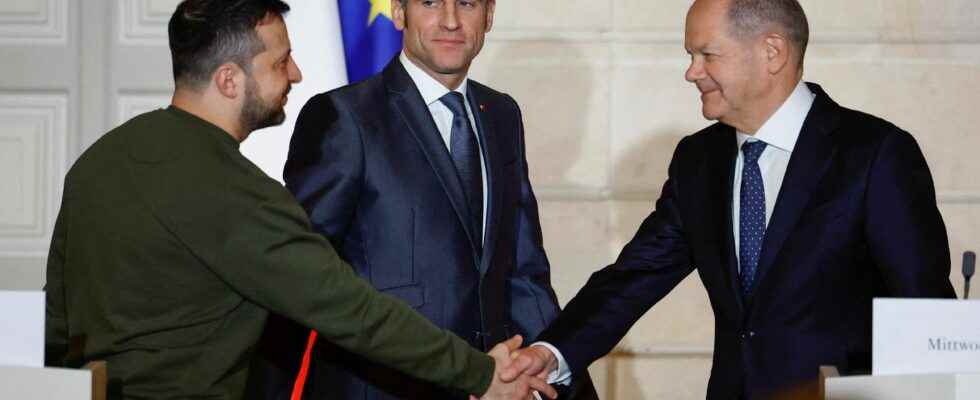Inevitably, the visit to Brussels of the Ukrainian President, Volodymyr Zelensky, will attract more spotlights. However, the 27 heads of state and government of the European Union must this Thursday, February 9, work on another subject, undoubtedly as essential for the future of the bloc as the war in Ukraine. Faced with the technological rivalry between the Chinese and American behemoths, the EU must define its own strategy, otherwise its industry will soon be relegated to the second division in the sectors of the future.
In the immediate future, this involves the need to develop an effective response to the Inflation Reduction Act (IRA), the major American plan involving 369 billion dollars in subsidies for green technologies. “We are being dumped on green tech. We are losing our lead over China and the United States. The sense of urgency is shared by all”, summarizes a high-ranking European source. The summit must set the first measures to music, in order to send reassuring signals to innovative European companies, tempted by the sirens and the American dollars.
The 27 will find the European Commission’s plan on the table. She proposed an administrative “shock of simplification” to allow companies to carry out their arbitrations by knowing more quickly which national or European subsidies they are entitled to. Brussels also intends to make the state aid framework more flexible in order to facilitate support and investment in six “clean” sectors deemed strategic (batteries, heat pumps, wind power, photovoltaics, electrolysers and carbon capture). The measure nevertheless alarms many countries in eastern Europe but also in the south, such as Italy. They fear that Germany – and to a lesser extent France – will be better able than them to support their national champions.
“A change of approach”
“We are beyond worried, we are sure that there is a risk for fair competition in the European internal market”, explains a very upset source. So, in return, the 27 have planned to authorize governments to use the still unspent manna of the great anti-Covid recovery plan in a more flexible way. There are about 250 billion euros left. “We are approaching a balance, a powerful response vis-à-vis the outside, reasonable given our internal balances”, wants to believe a European diplomat. Commissioner Thierry Breton is less optimistic: according to his calculations, around 100 billion euros are missing for Europe to match the sums put on the table by the USA or other players such as Japan and Canada.
To fill this gap, some are betting on the future “sovereignty fund” that Brussels has undertaken to present in the summer. The contours of this instrument are still vague, but it is already making the Scandinavian countries, the Dutch and the Germans wince, who are reluctant to take a new step towards greater European financial solidarity. The 27 should nevertheless have a first discussion on this subject this weekend in order to give some guidelines to the President of the European Commission.
For its supporters, this fund would be intended to defend the competitiveness of the Old Continent by limiting strategic dependencies. “We have our noses on the IRA, even though it is only part of the US anti-China response. After green technologies, they will look at supercomputers, artificial intelligence or biotechs” , already warns Elvire Fabry, researcher at the Jacques Delors Institute.
The plan for green technologies could therefore serve as a textbook case for other sectors. For example, the possibility of authorizing more public aid is subject to conditions: the benefits must extend to other regions or other European countries. “We will have to prepare for a fairly structural change in approach, moving from the functioning of the internal market based on fair rules of competition between Europeans to a logic of pooling. We must build more together” deciphers Elvire Fabry. This paradigm shift brought about by the China/USA match is far from being accepted by everyone. This will be a major challenge for the months to come. “Agreeing to talk about a common industrial policy is already a great novelty on the side of certain Member States”, notes an Elysian source.
